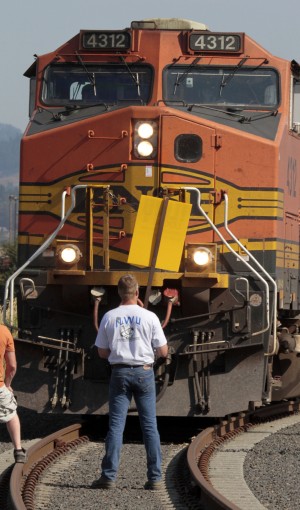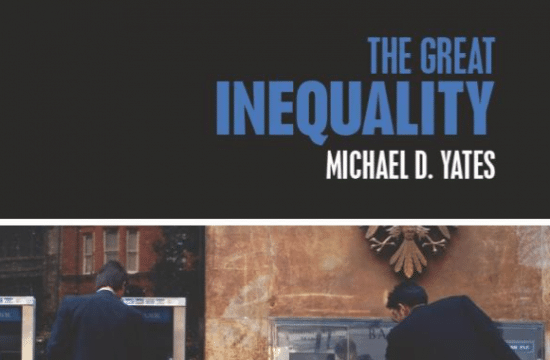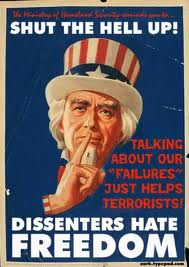 We have passed by Longview, Washington many times on our way to Seattle or Mt. Rainier. We never knew about its rich labor history, and we would never have guessed that it would become the center of a struggle that is as important for the future of the labor movement as the uprising in Wisconsin.
We have passed by Longview, Washington many times on our way to Seattle or Mt. Rainier. We never knew about its rich labor history, and we would never have guessed that it would become the center of a struggle that is as important for the future of the labor movement as the uprising in Wisconsin.
Longview is a town of 36, 000 people, located along Interstate 5, forty-eight miles north of Portland, Oregon and 128 miles south of Seattle. It was established in 1921, built privately by Robert A. Long, president of the Long-Bell Lumber Company. A company town, it was constructed originally to support a population of 50,000, including the 14,000 workers Long needed for his operations. About two miles southwest of the center of Longview is the Port of Longview, which was also established in 1921, by the state, as a locally-run Port Authority.
Today both Longview and the Port are staunchly pro-union strongholds. The Wikipedia entry for the Port tells us that,
The Port manages and operates a marine terminal complex where domestic and international ships and barges arrive and depart, and bulk, break bulk and project cargos are loaded or unloaded by local labor union workers. Union workers operate lifting and moving equipment including cranes, forklifts and reach stackers. These workers belong to the International Longshore and Warehouse Union Local 21.
The International Longshore and Warehouse Union (ILWU) has had a presence at the Port since the late 1930s, after the famous San Francisco general strike of 1934. Longshore workers, led by Harry Bridges and other radicals, including many Communists, defeated the shipping companies and forced them to accept a union hiring hall. This would dispatch workers, according to union rules, to any employer on the docks that needed them. Such a hiring hall arrangement, operated by ILWU Local 21, is in force at the Port of Longview. The Port has an agreement with the union that all of the shipping businesses using the port will utilize ILWU members to load and unload cargo. The ILWU also has a collective bargaining agreement with all of the owners of export grain terminals at ports along the Pacific Coast, an agreement that spells out the wages, hours, and terms and conditions of employment of the ILWU members who work at grain terminals.
In June 2009, three multinational corporations created a joint venture, EGT Development (hereinafter, EGT), to build a new, state-of-the-art, export grain terminal at the Port. The three companies are
– Bunge Limited: from its beginning in the Netherlands in 1818, Bunge has spread its tentacles around the globe and is today an agricultural giant, with operations in every aspect of food production, processing, storage, shipping, and finance.
– Itochu Corporation: this company was born in 1858 in Japan and is now a conglomerate with interests in textiles, machinery, aerospace, electronics, multimedia, energy, metals, chemicals, forest products, food, finance, realty, insurance, and logistics.
– STX Corporation: this South Korean business is involved in the provision of trading services (cargo management, crew management, insurance, etc.), shipbuilding, and a host of other shipping-related activities.
The grain terminal would be the first one built in the Pacific Northwest in more than thirty years. EGT used the promise of good union jobs as a tactic to obtain generous tax and land lease concessions from the state and the Port. However, nonunion workers from the United States and from Guatemala were employed in the construction of the $200 million grain terminal. Then, prior to the planned opening, EGT made known its intentions to operate with nonunion labor, in violation of the agreement the union had with the Port and in disregard of the ILWU’s grain terminal contracts. While the number of jobs is small (probably less than fifty), the union saw EGT’s actions as nothing less than an attempt to break the union, since if EGT succeeded in running its facility nonunion, every other company would seek to do the same.
Unlike so many unions today, the ILWU has maintained its tradition of militant opposition to any employer actions that threaten its members’ hard-won rights. And unlike nearly all contemporary unions, the ILWU can still mobilize its rank-and-file simply by invoking the principle of solidarity, that an injury to one is an injury to all. So, as soon as EGT’s position became clear, the ILWU went to war, one that began more than a year ago but heated to the boiling point over the past five months. It should be noted that the unions and EGT have negotiated, but that the company has refused to endorse the industry-wide agreement. EGT argues, as well, that it cannot be legally compelled to honor the agreement the ILWU has with the Port.
Union protests have escalated from informational pickets to invasion of terminal property to blocking of trains trying to deliver grain to the terminal to—on September 8—storming the EGT terminal and dumping grain onto train tracks and destroying some property. To deflect the ILWU assault, in July, EGT agreed to use union labor, but it hired a contractor to do the hiring, and the contractor employed members of the Portland local of the International Union of Operating Engineers (IUOE). This achieved two purposes for CGT. It allowed it to claim that it had no direct relationship with the ILWU and was therefore not obliged to bargain, and it gave it cover for arguing that the ILWU dispute was really a jurisdictional disagreement with the IUOE.
The decision of the IUOE local to do work traditionally done by ILWU members has not sat well with most of organized labor, including some leaders within the IUOE itself. The AFL-CIO has decided that its jurisdictional dispute resolution machinery should be applied here, but, given that operating engineers have never done this work at grain terminals on the west coast, this is a questionable ruling. As ILWU president Robert McEllrath put it in a letter to AFL-CIO president Richard Trumka: “I have never seen an Operating Engineer working in a grain facility before or since my time as a Longshoreman. This is “historically” ILWU jurisdiction any way you cut it!”
As the ILWU escalated its response to EGT’s defiance of the rights of the workers, those perennial allies of the employers, the police and the courts, sprang into action. Local police began to make arrests and escort scabs and trains into the Port. Union members and supporters were sought out and arrested—forced from their homes in front of young children who were left to fend for themselves, dragged roughly from their cars, and even taken from their churches. While the community has solidly supported the ILWU, which is a key contributor to the local economy and whose members are friends and neighbors, the same cannot be said for the police. In these post-9/11 times, police forces are flush with federal funds and swat teams and seem to enjoy denying citizens their right to protest.
The courts became involved in the EGT-ILWU war as a result of steps taken by the National Labor Relations Board (NLRB). The NLRB was originally established, by the National Labor Relations Act (NLRA) of 1935, to investigate employer activities that violated the Act and set penalties for employer tactics that denied workers their rights under the NLRA to unionize and bargain collectively with employers. However, under the draconian amendments to the NLRA added by Congress in the 1947 Taft -Hartley law, the NLRB must seek an injunction whenever a union commits certain, newly-defined, “union unfair labor practices.” One such unfair labor practice occurs when a union tries to force a third party from dealing with the employer with which the union has a dispute. If the NLRB has even superficial evidence that a union has done this, it must, according to another Taft-Hartley amendment, petition a court for an injunction to stop the union’s pressure on the third party. So when ILWU workers tried to prevent a railroad company from delivering goods to the EGT terminal, they violated the National Labor Relations Act’s Section 8(b)(4) and the NLRB had to seek an injunction. The Board also sought an injunction to end what it considered to be illegal picketing by the ILWU. The Board argued that this violated another Taft-Hartley amendment, 8(b)(1), whose provisions make picketing that keeps other workers (including scabs) from getting to work illegal. In this case, the NLRB did not have to seek an injunction, but it had the power to do so. It decided to exercise this power, and it asked the court to ban all ILWU picketing at the Port. Note that besides the requests for court-issued injunctions, the NLRB also filed unfair labor practice charges, which will be prosecuted in the near future.
All of this put the union in a precarious position. It had to make bail and arrange for the defense of its arrested members. And if the court issued injunctions and the union continued to do the things the injunction orders it to stop doing (blocking trains, engaging in mass or violent picketing, entering EGT property), it would be held in contempt of the injunction and face stiff fines and possible imprisonment of those who defied the injunctions. This would be especially problematic for the union if the court said that all picketing had to stop. A union that cannot picket is unlikely to prevail in a labor dispute. In addition, if the union were found guilty of the unfair labor practices, the NLRB could also issue harsh penalties.
In response to the NLRB’s petition for an injunction, in early September, Federal Judge Ronald B. Leighton, of the Western District of Washington, issued a Temporary Restraining Order (TRO) and then, after the union ignored the TRO, issued a Preliminary Injunction. In his order, Judge Leighton prohibited the union from “picket line violence, threat and property damage, mass picketing and blocking of ingress and egress at the facility of EGT.” He made one concession to the union by refusing to prohibit all picketing as the NLRB had requested. The judge set a hearing for September 15 to determine whether the union, by its actions after the issuance of the TRO, was in contempt.
At the September 15 hearing, Judge Leighton found the union in contempt and asked the NLRB to provide the court with estimates of the costs EGT, the NLRB, the police, and injured third parties had to bear as a result of the union’s defiance of the TRO. The NLRB set an estimate of $293,000. At a hearing on September 30, Judge Leighton ordered the union to pay damages of $250,000 and threatened to levy harsh fines on anyone who continued to disobey the injunction order.
The ILWU, which will appeal the damage ruling, responded to the fines with a statement that said in part:
Accountability goes both ways. The workers faced the judge today, but so far there has been no accountability for multinational EGT, which has created chaos in the community by taking millions in a special tax exemption, breaking their agreement to hire ILWU workers, suing the port, and trying to destabilize the grain industry in the Northwest. If union members stand on a train track exercising their First Amendment rights, it is a crime. But, if a major corporation plunders an entire community, it matters not.
The union also sharply criticized the calculations made to justify the fine, pointing out that
The damage amount of $250,000 imposed by the court includes the July 2011 purchase of law enforcement uniforms, the purchase of various forms of weaponry to arm public and private police forces, the overtime pay associated with the unnecessary overuse of law enforcement by Cowlitz County Sheriff Nelson, the reimbursement for travel and salary of EGT lawyers some of whom make over $400 an hour and fly first class, and the reimbursement of NLRB lawyers at corporate attorney hourly rates exceeding $450.
It is difficult to face a combination of large multinational corporations, a hostile labor law climate, the courts, and the police. Most unions won’t do it. Their leaders are often afraid of the consequences for themselves, and even when they are not, they do not know how to effectively mobilize their members to combat such powerful adversaries. The ILWU will have to wage a legal war appealing NLRB and court rulings, knowing that the labor laws are stacked against its members. This will cost the union a great deal of time and money. Most unions would have weighed these costs and never have engaged in illegal actions in the first place. They would just complain that the laws were bad and had to be changed. But they would never do anything but try to elect sympathetic Democrats who promise to support labor law reform. This strategy has never worked. The ILWU comes out of a different tradition, one that understands that workers must, through solidarity, develop enough power to directly challenge the power of employers and the government. When you do this, you might get what you want, including better labor laws.
The ILWU has begun a petition campaign to recall the local sheriff. It is organizing rallies and demonstrations and building solidarity support with transport workers around the world. I don’t doubt that we will see solidarity strikes and boycotts here and abroad against the three corporations that own the grain terminal. And I don’t doubt that as longshoremen and women meet each day at the hiring hall, they will talk about this conflict and develop new tactics that will ultimately defeat their class enemies.
At one of support-the-union rallies in Longview, a protester had a sign that read “No Wisconsin Here.” One commentator said that this referred to the attempt by Wisconsin governor Scott Walker to take away collective bargaining rights from public employees. The longshore workers were not going to let Walker’s Washington counterparts—EGT, the police, and the courts—do the same to them. However, the sign might have another meaning. The leaders of the public employee unions in Wisconsin ultimately decided to withdraw their support for mass demonstrations and the occupation of the state capitol and instead moved their organizations toward a campaign to recall the Republican politicians who supported Walker’s plans to destroy the unions. They agreed to make economic concessions as well. Perhaps the sign signifies the ILWU’s more aggressive stand. It won’t make concessions, and it won’t rely on political campaigns that do not (and cannot) directly challenge the power of the forces arrayed against it. Instead, it will rely upon and try to strengthen its own power to shut down the flow of commerce. It will make life so difficult for its enemies that they will be compelled to negotiate a settlement that will keep the ILWU a potent force at the grain terminal. It will also set an example for the rest of organized labor—that what workers have that capitalists don’t is numbers, and when these numbers cohere into a single force, then what IWW songwriter Ralph Chapin said will be true:
When the union’s inspiration through the workers’ blood shall run,
There can be no power greater anywhere beneath the sun;
Yet what force on earth is weaker than the feeble strength of one,
But the union makes us strong.







w00t!!
w00t w00t!!
I’ve been covering this story on my internet radio show… getting the word out… I will share this piece for you/us.
http://www.blogtalkradio.com/djabear if someone wants to call in and talk abou tthe situation, make the case etc… you have a friendly platform here;)